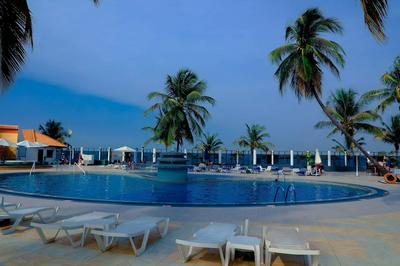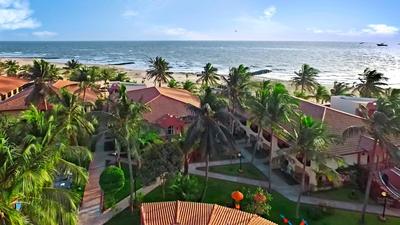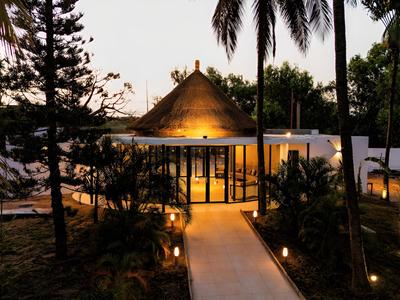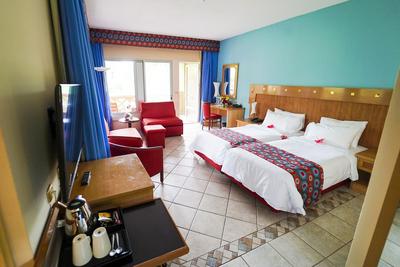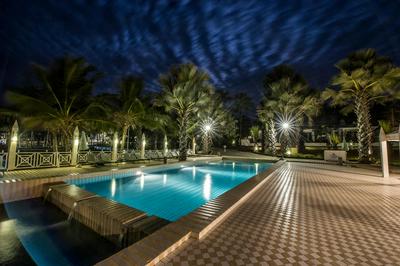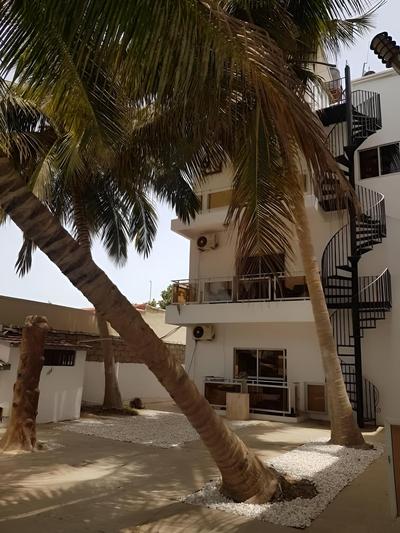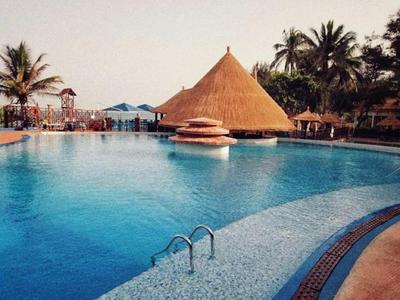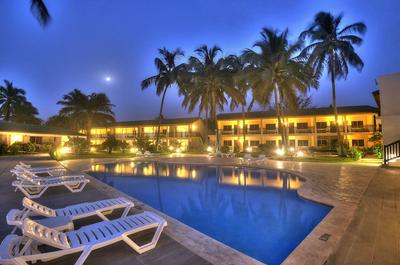When to visit Gambia during the year?
The Gambia, with its tropical climate, offers visitors unique experiences throughout the year. The dry season, from November to May, is particularly popular among tourists due to the mild temperatures and low humidity. This is the peak season to visit the stunning beaches and wildlife reserves, with destinations like the Banjul and the banks of the River Gambia coming alive with activity. During summer (June to October), the region experiences the rainy season, which generally sees fewer tourists. However, this period offers a rich experience of lush landscapes and vibrant birdlife for nature enthusiasts.
How to get to Gambia?
Getting to Gambia is relatively straightforward thanks to its main international airport, Banjul International Airport (BJL). Travelers can find connections from major cities around the globe. Various transportation modes serve the region, allowing easy access from neighboring countries and more distant locations.
- Main airports include Banjul International Airport, facilitating international flights from cities like London (Europe), New York (North America), Johannesburg (Africa), and Dubai (Asia).
- Low-cost airlines, such as Ryanair and EasyJet, operate seasonal routes.
- Typical flight times are around 6 hours from London, 11 hours from New York, and 8 hours from Johannesburg.
- Main bus stations in Banjul connect to cities like Dakar (Senegal) and other regional hubs, offering a comfortable travel experience.
- Routes often include regular service to and from major towns in The Gambia.
- While The Gambia does not currently have an international train service, public transport options between local cities are available.
- The train network primarily serves internal transport.
- Main highways, such as the Trans-Gambia Highway, connect Banjul to neighboring countries, making driving an adventurous option.
- The distance from Dakar is about 200 kilometers, taking approximately 3-4 hours.
- Be aware of possible tolls and varying road conditions, especially during the rainy season.
Tourist activities in Gambia
Gambia offers an array of activities suitable for every traveler. Nature lovers will find the Kiang West National Park remarkable, with wildlife sightings including monkeys and colorful birds. For those interested in culture, exploring the vibrant markets of Banjul or visiting the Kachikally Museum in Bakau provides insight into Gambian heritage. Visitors can also enjoy beautiful beaches like Lamin Lodge, perfect for relaxation, or engage in thrilling water sports such as kayaking. Adventure seekers might consider a river cruise on the Gambia River, where you can observe crocodiles and birds in their natural habitat. With its rich history, don't miss the chance to visit James Island, a UNESCO World Heritage site, capturing the poignant story of Gambia's role in the transatlantic slave trade.
Accommodation in Gambia
Accommodation options in Gambia range from luxury resorts to budget hostels, catering to various preferences and budgets. Hotels along the coast, such as the Ocean Bay Hotel & Resort, provide beautiful sea views and all-inclusive packages, starting at around $100 per night. For a more local experience, consider guesthouses in Banjul, offering authentic stays for as low as $30 per night. Apartments and villas are also available for those seeking a home-like setting, with prices varying based on location and amenities. It's advisable to book ahead during peak seasons for better rates and availability.
Food in Gambia
The Gambian cuisine is a vibrant melting pot of flavors and traditions, heavily featuring fish, rice, and a variety of vegetables. A must-try is the famous Benachin, a rice dish cooked with fish or meat, flavored with spices. Other favorites include Domoda (peanut stew) and Yassa (marinated chicken or fish). Local drinks such as Baobab juice or Ataya (mint tea) complement meals perfectly. Street vendors offer affordable eats, with average meal prices ranging from $3 to $10, making dining out both delicious and budget-friendly.
Important numbers and information
- Emergency Services: Police (117), Ambulance (102), Fire Brigade (118)
- Embassy Contacts: UK Embassy: 55-57, Waqf Road, Banjul, Gambia. Contact Number: +220 200 7200
- Airports: Banjul International Airport, Yundum, Banjul, Gambia
- Currency: Gambian Dalasi (GMD). Payments can be made by cash, credit cards accepted in major hotels and restaurants.
- Visa/Passport Regime: Visa required for most foreign visitors. Ensure your passport is valid for at least six months beyond your stay.
What to see in Gambia?
The Gambia is rife with attractions that unveil its rich culture and history. Key cities include Banjul, home to the National Museum and Albert Market, where local crafts and foods shine. The historic site of Juffureh, linked to the tale of Kunta Kinte, offers deep cultural insights. For nature enthusiasts, the Abuko Nature Reserve provides a serene retreat with diverse wildlife. The beach resorts at Kololi and Kotu are renowned for their picturesque coastlines, perfect for relaxing after a day of exploration. Don't overlook the vibrant town of Serrekunda, which showcases the heartbeat of Gambia’s local life with bustling markets and street performances.
History, geography and climate
As one of Africa's smallest countries, Gambia stretches along the banks of the Gambia River and is surrounded by Senegal. Its history is marked by colonial influences, with significant Portuguese and British settlements shaping its current identity. The geography ranges from sandy beaches along the coast to lush savannas inland. The country enjoys a tropical climate, with average temperatures between 25°C and 30°C throughout the year, varying slightly during the rainy and dry seasons.
Population and culture
Gambia’s population exceeds 2 million, primarily composed of ethnic groups like the Mandinka, Fula, and Wolof. English is the official language, but many locals communicate in various indigenous languages. The country predominantly practices Islam, with rich traditions observed during significant festivals such as Eid al-Fitr. Cultural features, such as traditional music and dance, reflect the diverse heritage. The Gambian people are celebrated for their warmth and hospitality, making visitors feel welcomed into their community.

